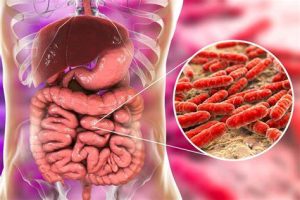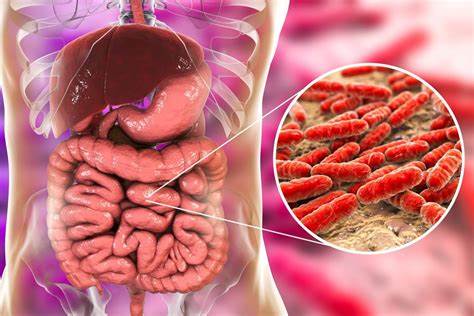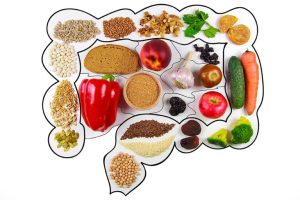The human gut, often hailed as the “second brain,” is a complex ecosystem where trillions of microorganisms coexist. At the epicenter of this intricate system lies the gut microbiome, an amalgamation of bacteria, viruses, fungi, and other microorganisms. The symbiotic relationship between the gut microbiome and the human body is pivotal, extending far beyond digestion,
The human gut, often hailed as the “second brain,” is a complex ecosystem where trillions of microorganisms coexist. At the epicenter of this intricate system lies the gut microbiome, an amalgamation of bacteria, viruses, fungi, and other microorganisms. The symbiotic relationship between the gut microbiome and the human body is pivotal, extending far beyond digestion, influencing immunity, mental health, and overall well-being.
The Gut Microbiome: A Microscopic Universe
The gut microbiome, residing predominantly in the large intestine, comprises diverse microbial species. Bacteria constitute the bulk, with over a thousand species identified, such as Firmicutes, Bacteroidetes, Actinobacteria, and Proteobacteria. This community’s composition varies significantly among individuals, influenced by genetics, diet, environment, and lifestyle.
The Role of Gut Microbiome in Digestion
Digestion is the initial cornerstone of the gut microbiome’s impact. The microbiota aids in breaking down complex carbohydrates, fibers, and certain nutrients that our body’s enzymes cannot fully process. These microbes ferment indigestible fibers into short-chain fatty acids (SCFAs), crucial for gut health and overall energy production.

Image By: https://th.bing.com
Immunity: The Gut Microbiome’s Guardian Role
The gut’s immune system, termed the gut-associated lymphoid tissue (GALT), interacts intimately with the microbiome. This symbiotic relationship is pivotal in training the immune system and maintaining its balance. The microbiome aids in the development and regulation of immune cells, playing a pivotal role in defending against pathogens while preventing excessive immune responses that may lead to inflammation or autoimmune disorders.
Gut-Brain Axis: Impact on Mental Health
The bidirectional communication between the gut and the brain, known as the gut-brain axis, is a fascinating aspect of gut health. The microbiome produces neurotransmitters like serotonin and dopamine, influencing mood, cognition, and behavior. Moreover, it communicates with the central nervous system through the vagus nerve, affecting stress responses and mental well-being.
Gut Microbiome and Disease: Unraveling the Links
Imbalances or disruptions in the gut microbiome, termed dysbiosis, have been associated with various health conditions. Gastrointestinal disorders like irritable bowel syndrome (IBS), inflammatory bowel disease (IBD), and even metabolic disorders like obesity and diabetes have been linked to alterations in the gut microbial composition.
Nurturing Gut Health: Strategies for a Flourishing Microbiome
- Dietary Diversity: A varied diet rich in fiber, prebiotics (food for good bacteria), and probiotics (live beneficial bacteria) is crucial. Foods like fruits, vegetables, whole grains, fermented foods (yogurt, kefir, kimchi) support microbial diversity.
- Limiting Antibiotic Use: Overuse of antibiotics can disrupt the gut microbiome. When necessary, targeted antibiotic use and supplementing with probiotics may help restore microbial balance.
- Stress Management and Sleep: Chronic stress can impact the gut microbiome. Prioritizing stress reduction techniques and ensuring adequate sleep positively influences gut health.
- Physical Activity: Regular exercise can positively modulate the gut microbiome, promoting microbial diversity and enhancing overall health.
Image By:https://www.karenberrios.com/
Conclusion
The gut microbiome stands as a testament to the intricacies of the human body, showcasing its profound impact on health, immunity, digestion, and mental well-being. Understanding and nurturing this microscopic universe within us through a holistic approach can pave the way for enhanced overall health and vitality. As we celebrate its significance, fostering a harmonious relationship with our gut microbiome remains a cornerstone for a healthier future.


















Leave a Comment
Your email address will not be published. Required fields are marked with *